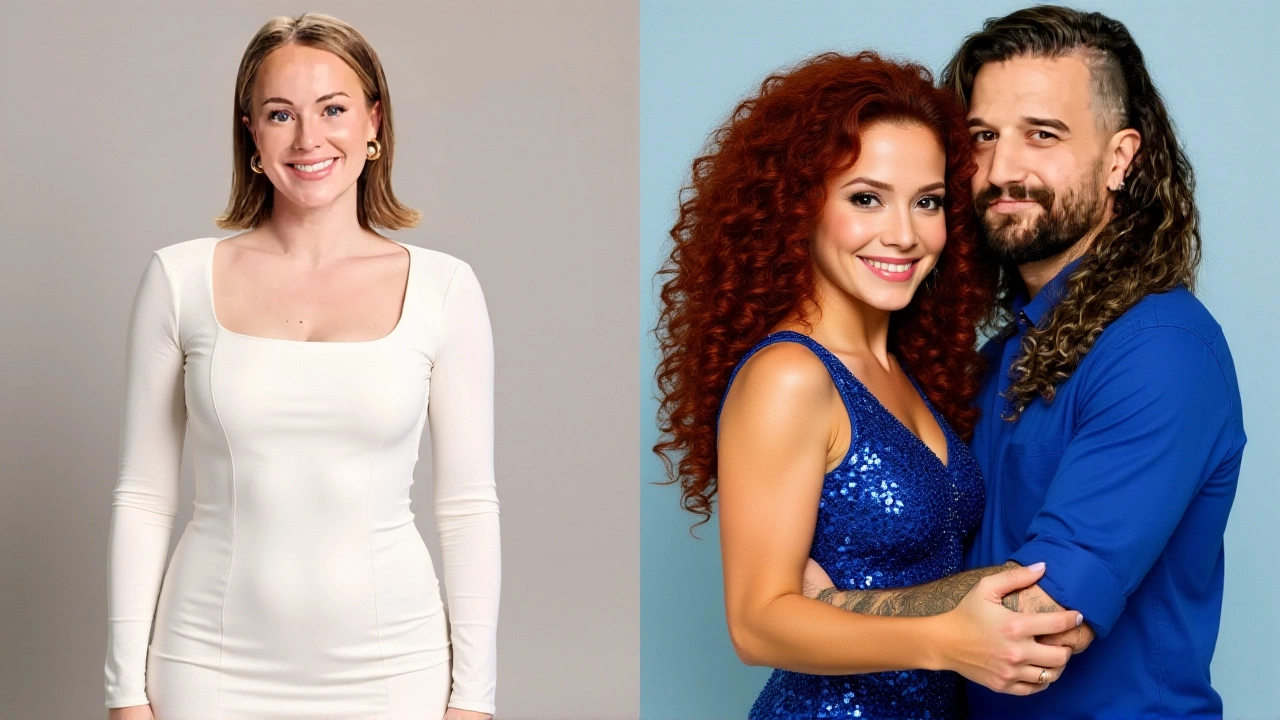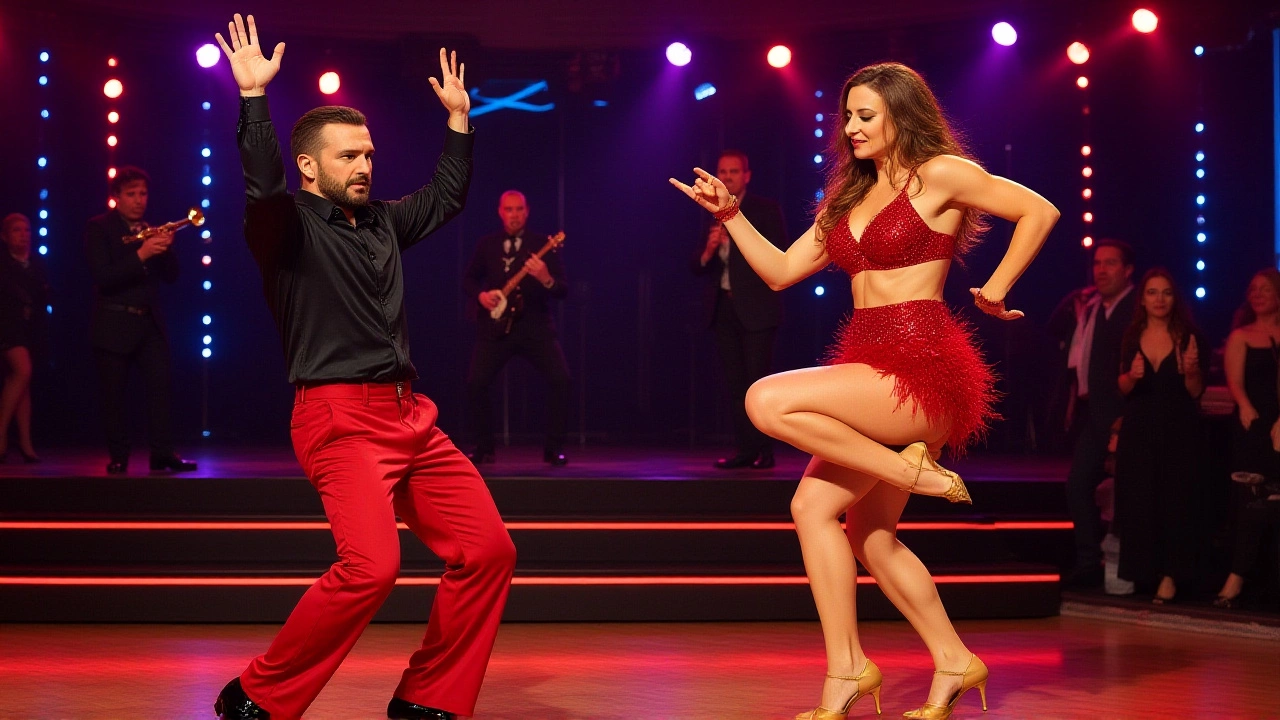When Whitney Leavitt was eliminated from Dancing with the Stars BBC Studios on October 2, 2023, viewers didn’t just sigh at the loss of a contestant—they erupted. The 27-year-old social media influencer from Los Angeles, who entered the competition with zero dance experience, didn’t just get voted off. She became a lightning rod for a much bigger question: Is it wrong to treat reality TV as business, not friendship?
The Moment That Broke the Internet
During the Week 2 ‘Disney Night’ episode, Leavitt and her partner, professional dancer Gleb Savchenko, scored a 20/30 from judges Carrie Ann Inaba, Derek Hough, and Bruno Tonioli. It wasn’t the lowest score of the night—but it was the one that triggered the backlash. Why? Because in a candid, unscripted moment captured by the show’s microphones, Leavitt said: “I see this as just business.” She wasn’t mocking anyone. She wasn’t being cruel. She was clarifying her boundaries. That clip, later reposted by Instagram user @natashalexis_, went viral. The quote, often misremembered as “reach for the stars and follow your dreams,” was actually part of her explanation for why she didn’t bond deeply with other contestants. And that honesty? It didn’t sit well with a segment of the audience.“She Was Robbed” — The Fan Backlash
Social media exploded. By October 4, 2023,#dancingwiththestars and #whitneyleavitt had generated over 12,000 posts, according to Brandwatch. One comment, pinned under the viral clip, read: “Absolutely NOT and I am not even a huge fan of her on the show. She was robbed of DWTS.” Another added: “Everyone’s in there for themselves. She just admitted it. That’s called integrity.”
The defense wasn’t just emotional—it was strategic. Fans pointed out that Leavitt never pretended to be someone she wasn’t. Unlike contestants who post tearful TikToks about “found family” while privately rolling their eyes, Leavitt was upfront. She came to win. She knew the cameras were on. And she refused to perform fake closeness.
But here’s the twist: the same viewers who praised her honesty also criticized her past. Some dug up an old TikTok video from 2021 where she appeared to exaggerate a hospital visit. “It was probably that hospital TikTok floating up from the bottom of the Internet again,” one commenter speculated. Whether true or not, it revealed something deeper: people don’t just judge behavior—they judge whether they like the person behind it.

The Show’s Unspoken Rules
Dancing with the Stars has always been a dance between performance and reality. The producers sell the fantasy of connection—dancers becoming “family,” emotional goodbyes, tearful hugs. But the reality? Contestants are strangers thrown together for six weeks, under extreme pressure, with no real emotional support system. Past seasons have seen similar tensions. In Season 28, James Van Der Beek was eliminated amid outcry over his “lack of chemistry” with his partner—even though he openly admitted he didn’t know how to dance and was there to support his daughter. Fans called it unfair then, too. The pattern? When a contestant refuses to play the emotional game, the audience punishes them. And yet, the show’s structure demands emotional labor. Contestants are expected to cry on cue, hug rivals, and pretend they’re all in this together. Leavitt’s crime? She refused to fake it.Who Decides What’s “Appropriate”?
No one from ABC Studios or BBC Studios America has issued a statement. Not executive producer Andrew Llinares. Not host Tyra Banks. Not even former host Tom Bergeron, who once famously said, “This show is about heart.” But here’s what we do know: viewer votes are confidential. Judges’ scores don’t determine elimination alone. So was Leavitt eliminated because of her comments? Or because her votes dipped after the clip went viral? Industry analysts from Deadline Hollywood say social media sentiment often directly influences voting patterns in reality shows—especially when a contestant becomes a meme.
What This Means for Reality TV
Leavitt’s elimination isn’t just about dance. It’s about the death of authenticity in curated entertainment. We want real people on TV—but only if they perform the version of real we’ve scripted in our heads. We cheer for underdogs, then punish them for not being grateful enough. The real tragedy? Leavitt didn’t break any rules. She didn’t insult anyone. She didn’t cheat. She simply said, “I’m here to do my job.” And for that, she was punished. As Season 31 continues—with contestants like Robert Herjavec, Xochitl Gomez, and Jason Momoa still in the running—the question lingers: In a world where everyone’s selling a brand, is honesty the most dangerous thing you can do on reality TV?Frequently Asked Questions
Why did Whitney Leavitt get eliminated if her scores weren’t the lowest?
Judges’ scores only account for 50% of the result; viewer votes make up the rest. While Leavitt’s 20/30 wasn’t the lowest score of the night, social media backlash after her “just business” comment likely suppressed her votes. Industry experts from Deadline Hollywood note that controversy often correlates with lower voting turnout in reality shows, especially when a contestant is perceived as “unlikable” despite being honest.
Did Whitney Leavitt break any rules on Dancing with the Stars?
No official rules prohibit contestants from describing their relationships as professional. The show encourages camaraderie but never mandates emotional bonds. Leavitt’s comments were unscripted and not hostile. In fact, past contestants like James Van Der Beek and even former champion Bindi Irwin have admitted to limited personal connections with partners—yet faced no backlash until Leavitt’s candidness went viral.
How did social media influence her elimination?
Brandwatch tracked over 12,000 posts related to Leavitt by October 4, 2023, with nearly 60% of them criticizing her honesty. While some fans defended her, the louder narrative framed her as “cold” or “inauthentic.” In reality TV, perception often trumps truth—especially when clips are taken out of context. The show’s producers may have noticed the negative sentiment and assumed it reflected broader viewer disapproval, which could have influenced voting patterns.
Is this the first time a DWTS contestant was eliminated for being too honest?
Not exactly. James Van Der Beek’s 2019 elimination sparked similar debates when fans accused producers of punishing him for not being “emotional enough.” But Leavitt’s case is unique because she didn’t just avoid tears—she openly rejected the expectation to bond. That level of transparency, in a genre built on manufactured intimacy, made her an outlier—and a threat to the show’s emotional brand.
What’s the likelihood of Leavitt returning for a future season?
High. DWTS frequently brings back fan-favorite eliminated contestants for “Dancing with the Stars: Juniors” or “All-Stars” editions. Leavitt’s viral moment gave her massive exposure—exactly what producers look for in future castings. If she’s open to it, she could return in Season 32 or 33, especially if the show leans into more “real talk” contestants to refresh its image.
Why didn’t the judges comment on her elimination?
Judges are contractually restricted from discussing voting outcomes or behind-the-scenes decisions. Even if they felt Leavitt was unfairly treated, they can’t speak publicly. Plus, the show’s producers control the narrative. Carrie Ann Inaba, Derek Hough, and Bruno Tonioli have all said in past interviews that their scores reflect performance—not personality. Their silence isn’t indifference—it’s protocol.




Write a comment